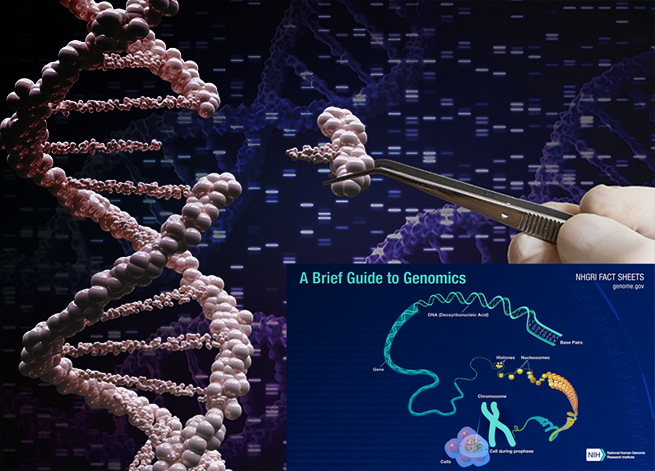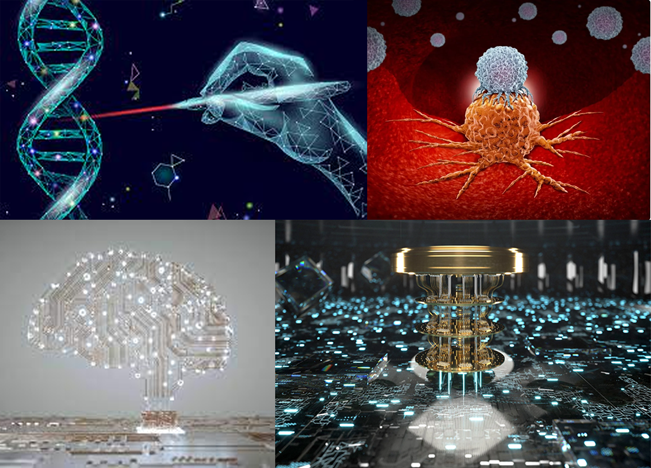Introduction
Genetics is the study of heredity and the variation of inherited characteristics in organisms. Genomics is a broader field that encompasses genetics, molecular biology, and bioinformatics. It involves the study of the entire genome of an organism, including its DNA sequence, structure, and function. The field of genomics has revolutionized the way we study genetics, allowing us to understand the genetic basis of disease, evolution, and other biological processes. In this essay, we will explore the concepts of genetics and genomics and their impact on our understanding of biology and medicine.
Genetics
Genetics is the study of genes and their inheritance patterns. Genes are segments of DNA that code for a specific trait or function. They are located on chromosomes, which are structures made up of DNA and proteins found in the nucleus of a cell. Each individual has a unique set of chromosomes, half of which are inherited from each parent. The study of genetics involves analyzing the transmission of traits from one generation to the next.
The transmission of traits can be described using the principles of Mendelian genetics. These principles describe the way in which traits are inherited through the passing of genes from one generation to the next. For example, if a trait is determined by a single gene, it can be inherited in a simple dominant-recessive pattern. This means that if a person inherits a dominant allele (a variant of a gene) for a trait, they will express that trait, whereas if they inherit a recessive allele, they will not express the trait unless they inherit two copies of the recessive allele.
Other types of genetic inheritance patterns include incomplete dominance, where neither allele is fully dominant or recessive, and co-dominance, where both alleles are expressed equally. Some traits are determined by multiple genes, and their inheritance is influenced by complex interactions between these genes and the environment.
Genomics
Genomics is a field that encompasses the study of the entire genome of an organism. The genome is the complete set of genetic material in an organism, including all of its genes and non-coding regions. The human genome, for example, consists of approximately 3 billion base pairs of DNA arranged in 23 pairs of chromosomes.
The field of genomics has revolutionized the way we study genetics, allowing us to understand the genetic basis of disease, evolution, and other biological processes. The ability to sequence entire genomes has provided researchers with a wealth of data that can be used to study the genetic basis of diseases such as cancer and diabetes. Genomics has also allowed us to study the evolution of species by comparing the genomes of different organisms.
Applications of Genetics and Genomics
The study of genetics and genomics has many practical applications in medicine, agriculture, and industry. In medicine, the identification of disease-causing genes has led to the development of new diagnostic tests and therapies. For example, genetic testing can be used to identify individuals who are at risk of developing certain types of cancer, allowing for earlier intervention and treatment.
In agriculture, the use of genetic engineering has led to the development of crops that are resistant to pests and diseases. This has increased crop yields and reduced the need for pesticides and other chemicals. Genetic engineering has also been used to develop livestock that are resistant to disease and produce higher yields of milk and meat.
In industry, the production of recombinant proteins has revolutionized the way we produce pharmaceuticals and other products. Recombinant proteins are produced by genetically engineering bacteria or other organisms to express a specific protein. This has led to the development of new drugs and therapies that would not have been possible using traditional methods.
Ethical Considerations of Genetics and Genomics
The study of genetics and genomics raises many ethical considerations. One of the main concerns is the potential for discrimination based on genetic information.
![]()





